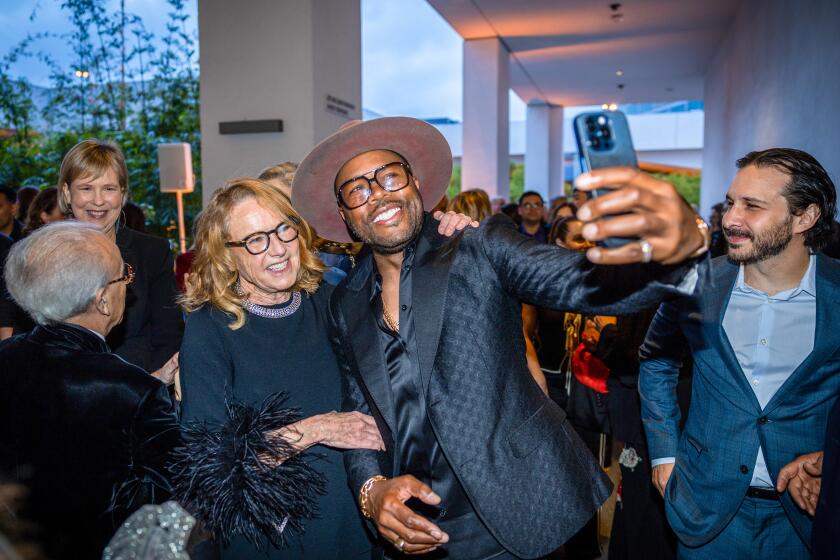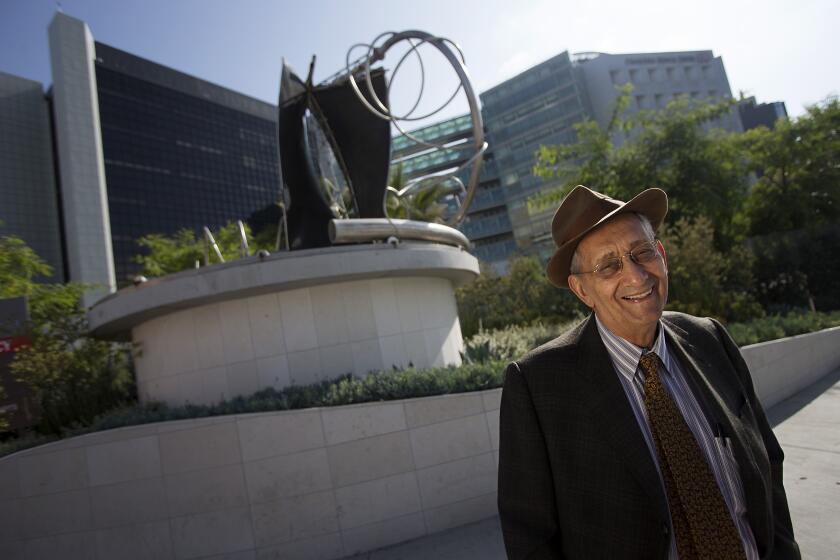An Artist Takes the Easy Path
Maurizio Pollini, on the evidence of his just-released set of the five canonic Beethoven Piano Concertos (Deutsche Grammophon 439 770, three CDs), has become a safe, secure pianist, a prematurely old master.
In the 1960s, when as a teenager he was first making his brilliant presence felt, the Italian pianist was a risk-taking tough guy, who turned the gentle moonlight of Chopin into a menacing, dark night of the soul, and whose hard-edged Beethoven gave us a notion of why that composer was considered a dangerous revolutionary in his time.
Much of that attitude remained in 1980, when Pollini first recorded the Beethoven concertos, their success partially stemming from a certain tension--as opposed to uniform agreement--between himself and his octogenarian conductors, Karl Bohm and Eugen Jochum, both since deceased.
Pollini today, with old comrade Claudio Abbado at the helm of the Berlin Philharmonic and agreeing with his soloist’s every last semiquaver, is sufficiently relaxed to recall the fogies he, by the implication of his interpretations, used to lambaste.
Everything he does here is the work of a supremely skilled artist but also a complacent one, producing lovely, Romantic sounds (the pedal is used to a degree that would once have been unthinkable) and the same sounds in all five concertos.
Pollini now offers us Beethoven as a comfortable middle-aged man, which he never was.
By contrast, a pair of young Finns, pianist Olli Mustonen and conductor Jukka-Pekka Saraste, present Beethoven’s other piano concerto, his arrangement for that instrument of the Violin Concerto in D, with stunning panache and incisiveness (London 443 118).
OK, it’s easier to make an impression with music for which countless performance precedents don’t exist, but there is a freshness in the work of all concerned--and that includes the superb orchestra, the Deutsche Kammerphilharmonie, who will be coming to Hollywood Bowl this summer--that bespeaks a degree of musical curiosity we rarely get from the grizzled veterans.
The coupling, too, is a winner: J.S. Bach’s D-major Keyboard Concerto, which Mustonen argues most convincingly on the piano with this conductorless performance.
Conifer, a small British label, claims to offer “world premiere recordings with the composer’s final revisions” of the Beethoven Second (in B flat) and Fourth (in G) piano concertos (75605).
Translation: These versions are derived from Beethoven’s own performing editions, used by the pianist-composer after the published editions appeared.
In the earlier concerto, the differences do not alter the work’s overall shape. This G-major, however, is a shocker. For one thing, there are many more notes than we are accustomed to. Here, the most spare and ethereal of the Beethoven Five is a busier, showier and, ultimately, weaker entity.
The differences are most striking in the opening movement, where the impressive silences of the “original” are filled with just enough virtuoso flash--a measure here, a trill or run there--to weaken the effect of its open textures.
The great empty spaces of the ghostly slow movement are, thankfully, untouched but the finale is again gussied-up, if not to the extent of the first movement.
Whether or not we approve of the result, it deserves a hearing. This isn’t the work of a latter-day crank, “discovering” something the composer himself didn’t know, but of Beethoven himself, a fact communicated in these stylish, vigorous readings by a young Russian pianist named Mikhail Kazakevich and the English Chamber Orchestra under Charles Mackerras, the one name conductor of his generation--he turns 70 in November--willing to tackle such offbeat repertory.*
More to Read
The biggest entertainment stories
Get our big stories about Hollywood, film, television, music, arts, culture and more right in your inbox as soon as they publish.
You may occasionally receive promotional content from the Los Angeles Times.






